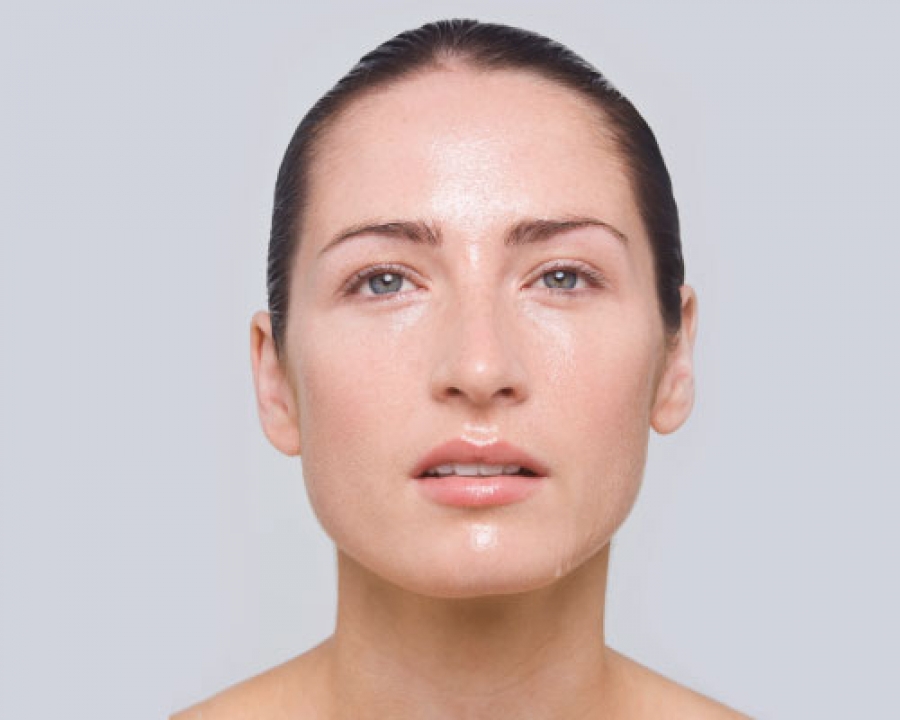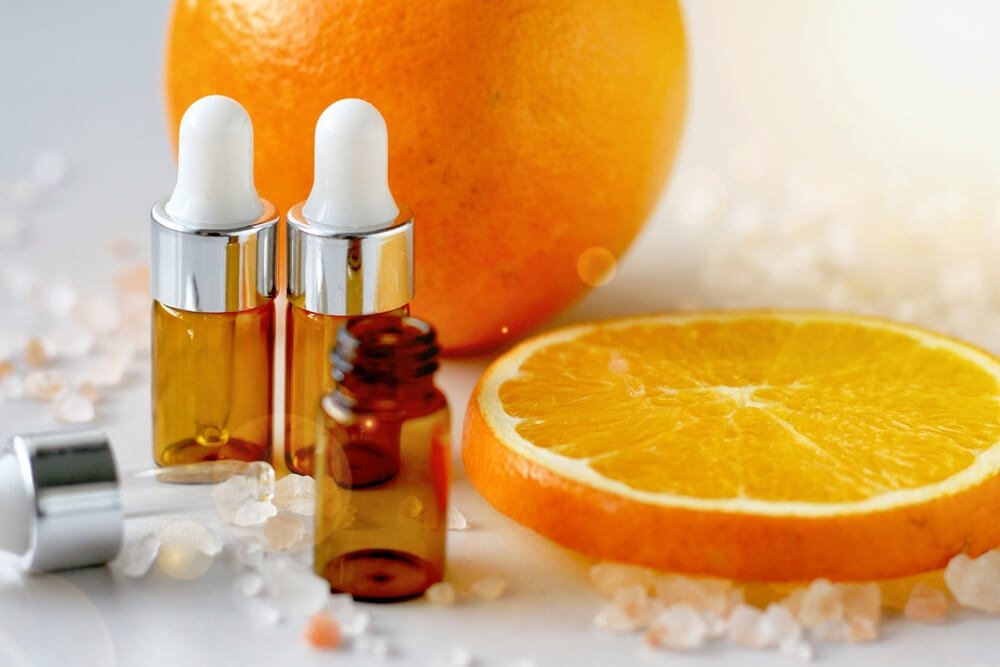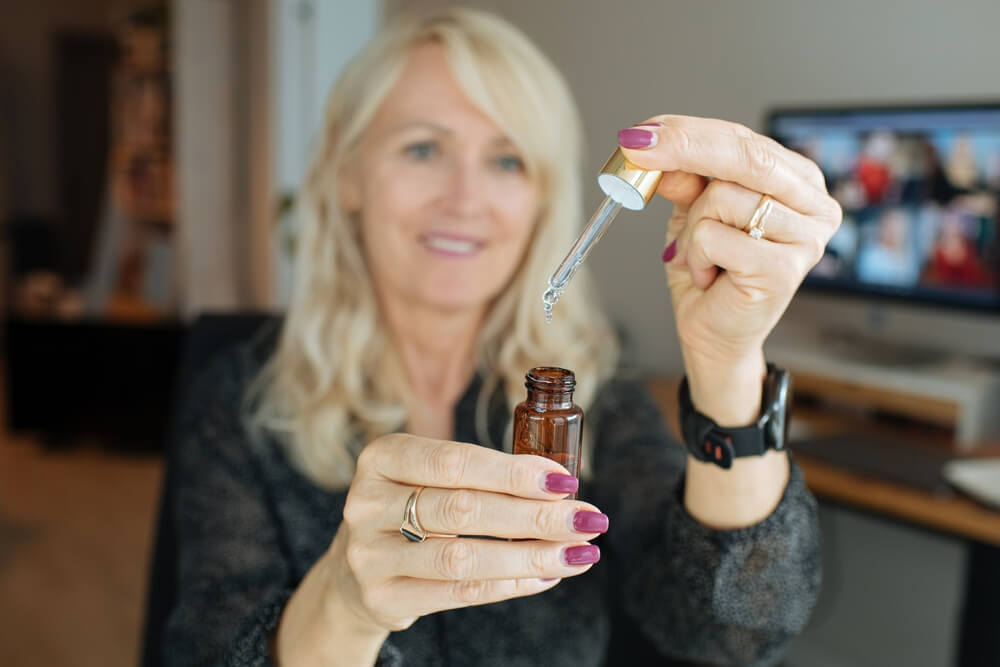Vitamin C: effects and benefits on the skin, pro-age skincare


Vitamin C or Ascorbic Acid is a water-soluble vitamin that is precious both for our skin and for our body.
It can be considered the superstar among vitamins, as an essential nutrient and a concentrated nutrient of 360 degrees benefits for the whole organism, vitamin C in fact participates in many of its protective processes.
Where is vitamin C found
Vitamin C is found mainly in fresh plant foods with higher concentrations in citrus fruits, kiwis, strawberries, black currants, grapes; in some vegetables such as dark leafy vegetables (broccoli, spinach, cabbage, and watercress), peppers, tomatoes, potatoes.


What are the main properties and functions of vitamin C?
ANTI-AGING ACTION
Counteracts the signs of aging as its use has shown a number of benefits:
- stimulates the natural synthesis of collagen , with firming and redensifying effects ;
- protects the skin from chronic aging by blocking the enzymes that degrade collagen;
- its antioxidant function , provides anti-radical protection: neutralizes the effects of free radicals by slowing down the processes related to physiological aging and photo aging, here vitamin C plays an important pro-age role , prevents the onset of wrinkles and skin spots , and its constant use really makes a difference!
LIGHTENING ILLUMINATING ACTION
- inhibits melanogenesis;
- lightens and reduces skin spots (age spots and sun spots);
- evens out the tone of the complexion;
- brightens the complexion;
- Reduces post-inflammatory hyperpigmentation.
PROTECTIVE ACTION
- keeps collagen in activity, a protein necessary for the formation of connective tissue, supporting the repair of damaged tissues;
- protects the microcirculation;
- promotes the immune system;
- Performs a preventive action against photo aging: it protects the skin from oxidative stress and damage caused by UV radiation, managing to control the inflammatory response of the epidermis and repairing the tissues damaged by sun exposure.
- Has antimicrobial and anti-inflammatory effects.
What are the benefits on the skin?
Topically applied vitamin C Serum helps to:
- Lighten and uniform skin tone by reducing the visibility of skin spots, discolorations, post-inflammatory pigmentations (from acne);
- reduce the visibility of wrinkles ;
- firm and make the skin more elastic;
- Brighten the complexion of the skin giving it a healthy and rosy appearance.


Vitamin C in cosmetics: stability and functions
After all this premise, it is easy to understand why Ascorbic Acid is considered one of the best antioxidants for cosmetic use, and consequently widely used to formulate face creams and serums with protective, anti-aging and antioxidant action.
However, pure Ascorbic Acid or L-Ascorbic Acid is a difficult substance to formulate and insert in cosmetic preparations for two reasons:
- Since vitamin C is very unstable, that is, it tends to oxidize rapidly, as it is sensitive to oxygen, light and heat. Its thermolability can often be found in cosmetics with a tendency to brown and the consequent loss of effectiveness in a short time;
- Moreover, vitamin C is better absorbed and has its greatest effectiveness when it has a pH below 3, not particularly eudermic, a very low pH tends to be irritating to the skin especially if vitamin C is in high concentrations. The greatest effectiveness of vitamin C was found with concentrations between 15% and 20%, percentages definitely not recommended for sensitive skin, for which it should not exceed 15%.
These two values are not always declared by the producer, unless the concentration is such that it is necessary to protect the sensitivity of the consumer with correct information.
How to choose a vitamin C face serum?
Anyone who has never approached vitamin C serum should know that they tend to be quite sticky on the skin, due to their difficulty in being absorbed.
To choose a Best Vitamin c serum that contains Ascorbic Acid in its pure form (Ascorbic Acid in INCI) it is necessary to pay attention to two factors with respect to the sensitivity of your skin:


The pH
The most irritating Ph has a value of 3-4
The least irritating Ph has a value of 4-5
Concentration
Most irritating concentration 15% -20%
Less irritating concentration 5-15%
How to use vitamin C: use and precautions
- Since vitamin C has a low pH, it is better absorbed when the skin value is also low: apply vitamin C after the tonic, before any other type of cosmetic, waiting for the skin to be dry;
- apply 1-2 drops directly on the face, and dab them on the skin directly with your fingers, excluding the area around the eyes and lips;
- after application, wait 10-20 minutes before applying other products in the same routine session, to avoid raising the pH and consequently neutralizing the acidity of vitamin C;
- if the vitamin C serum turns out to be too irritating and aggressive for your skin, you can use it by adding it to your tonic, it will lose some effectiveness but your skin will gain health;
- to accustom the skin to vitamin C, it is always good to start with caution, using it only a couple of times a week, gradually increasing; bearing in mind that an initial redness of the skin is completely normal and is caused precisely by the change in pH;
- do not use vitamin C on injured, burned skin, with dermatitis, with eczema ;
- vitamin C is not photosensitizing like other acids;
- To use the peptides in the same routine, it is recommended to wait at least 20/30 minutes after application.
Vitamin C deficiency: the effects on the skin
We know that an important deficiency of vitamin C in the organism in general can cause Scurvy, a disease that leads to fragility and capillary hemorrhage; but what are the effects on the skin?
Vitamin C deficiency can lead to:
- loss of elasticity and brightness, resulting in excessive dryness;
- appearance of skin spots;
- rosacea;
- development of bacterial infections (acne);
- premature aging;
- Scarring difficulties.


